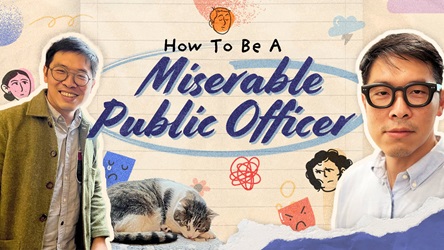Understand The Magnitude Of Your Responsibility

Ambassador-at-Large/Special Envoy to Andhra Pradesh, Ministry of Foreign Affairs (2008 – present)
Singapore’s High Commissioner to Pakistan (1994 – 2001)
Non-resident ambassador to Iran, MFA (1989 – 2008)
DEAR YOUNG OFFICER,
You have been receiving very valuable advice from senior officers in the Public Service. My position is a little different from theirs. I am from the private sector but with links to the government because of my diplomatic assignments.
My first suggestion to you as a young officer in government service is to understand the magnitude of your responsibility. In the private sector, a person of your age can very seldom hope to make an impact on national policies. On the other hand, a proposal or a comment that you make, though it will go through many levels, can become a policy that affects the lives of many people in the country.
This makes it imperative that you gather as much information as you can and carefully consider the implications of your proposal or comment before sending it to your supervisor. Your experience at this stage of your life will not be comprehensive enough to handle the varied subjects put before you. Be prepared to study the issues deeply and make recommendations without being affected by prejudices and pre-conceived notions.
I have dealt with government officers in Malaysia, Thailand and India as well as those from Singapore. The common thread among them is the tendency to say “no” to any issue they don’t understand or are not sure of. “No” puts them in a comfort zone. Singapore, totally dependent on the ingenuity of its human resource, cannot be stuck in this comfort zone. The deep knowledge you acquire on each subject will help you to move to a new comfort zone based on your deeper understanding.

The second point I want to make pertains to general knowledge. It is a common problem in Singapore and elsewhere that government officers, because of the pressure of work, have very little time to devote to subjects unrelated to their work. Too much specialisation at the expense of shutting out everything else retards your own intellectual growth and affects your ability to be effective in your job.
I want to give you an example of someone who has made a significant impact because of his broad knowledge or interest.
When Mr George Yeo was the Minister of Trade and Industry, I accompanied him on a visit to Kerala where our hosts had just returned from an arduous pilgrimage to a very austere deity. Mr Yeo asked them so many penetrating questions about the significance of the pilgrimage that the hosts realised he already had a great deal of knowledge about the Hindu deity even though he is Catholic. One of the officials who was impressed with Mr Yeo’s depth of knowledge commented that he now understood why Singapore was successful even though it was small and had only a tenth of the population of Kerala.
My own experience in Iran further underscores this point. The Iranian officials were initially unhappy with the idea of a person from the private sector being a non-resident ambassador there instead of a career diplomat. My knowledge of Iranian poets such as Omar Khayyam, Hafiz and Ferdowsi, though through translations, helped to break the ice with them.
Success in your career depends on how you approach each problem. It remains a problem if you let it overcome you. However, if you see it as an opportunity, your chances of advancement in your career are greater and Singapore would be better for it. I wish you a successful career.
- POSTED ON
Nov 9, 2015
- TEXT BY
Gopinath Pillai









